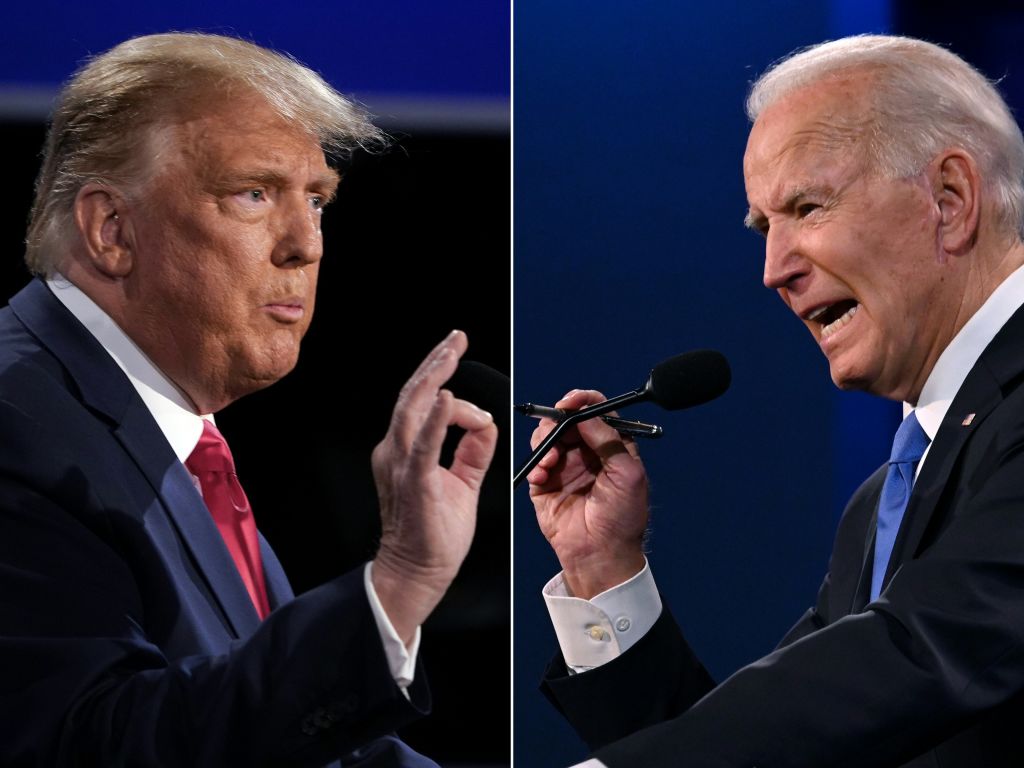Hello and happy Sunday. I don’t know how you’re doing in the middle of this holiday season, between preparations and celebrations, but I’m feeling a weird mix of energized and exhausted. And not entirely because of the holidays: I’m energized because I got to go to D.C. this week to see my colleagues in person and partake in some planning meetings for next year, and a little exhausted because once my plane landed back in Cincinnati (or, um, Kentucky for you sticklers), I hit the road to go collect our son from college for winter break.
The more I think about it, that’s also a good description of how I’m feeling about the coming year: energized about the opportunities we’re going to have to do good work on important topics, and preemptively exhausted about the challenges those same topics are going to pose.
I’ve been in political media for longer than I care to admit, but I can’t remember any year that presented so many weighty difficulties. The 2016 election was a journey, to be sure, but as crazy as it was, we didn’t enter the year knowing that Donald Trump would be the GOP nominee—much less that he would win the White House. Today, we’re looking at a general election that would not only be a rematch from 2020 but draw on elements from eight years ago: two deeply unpopular candidates who only have a shot at winning because of who their opponent is.
Other big stories that would normally dominate the news will inevitably take a back seat, but they shouldn’t: The war in Ukraine is grinding on. Will the West continue to stand with Kyiv? Will the winter give Russia a chance to regroup? Could the war expand beyond Ukraine’s borders and into Eastern Europe?
Then, of course, there is the war between Israel and Hamas. We’ve grown accustomed to such conflicts lasting days or weeks, but this iteration has lasted nearly three months—with no end in sight. Hamas’ strategy of hiding underground and among its own people is leading to uncomfortably high civilian casualty counts, and the Biden administration has begun dropping not-so-subtle hints to Israel about scaling back its war effort and deploying different tactics.
What happens in Gaza doesn’t exactly stay in Gaza. The rise in antisemitism across the West has been as surprising as it has been disturbing. College campuses in America have been dealing with it poorly, as we’ve detailed, and progressive support for the Palestinian cause (that sometimes bleeds into outright antisemitism) could end up playing a decisive role in the 2024 election here.
We’ve been talking a lot about all of these topics in our editorial meetings and as we make plans for the next year. What is the best way to cover Donald Trump? (An aside: The last big meeting I attended in my capacity as a senior editor at Slate was convened for this express purpose—seven years ago. Apparently we’re all still figuring it out.) If we try to ignore the bluster and the hysterics, are we leaving people uninformed about the threat he might present? If we focus on it too much, do we sound like we’re the ones hyperventilating?
So yeah, it’s all a little exhausting. But what keeps me energized is knowing that we’ve built a team that is well-suited to tackle these topics and give you reporting, analysis, and commentary that will help you make sense of it all. And we are also motivated by your support for the work that we do and the regular feedback you give us. (One thing we would definitely not complain about is if you were to share that feedback with friends and family members who might also appreciate our work, if you know what I mean.)
Thanks for reading.
It’s been more than 50 years since a third-party candidate won votes in the Electoral College, and much longer than that since an election was actually thrown to the House of Representatives. But with Trump and Joe Biden as the likely major-party nominees, there could be a real hunger for an alternative (or three) in the 2024 election. How about an independent bid from Robert Kennedy Jr.? Could No Labels actually mount a successful centrist effort? What happens if no candidate receives the requisite 270 electoral votes? Mike dives deep on all that and more, looking back on the events that made John Quincy Adams the president in 1824. “While our assumptions about hyperpartisanship suggests state delegations will stick with their party’s nominees [in a contingent election],” Mike writes, “the introduction of a third candidate into the mix—especially a centrist with appeal to those few crucial moderate House members in both parties—could make for some unpredictable political jockeying.”
Polling shows that support for Israeli-Palestinian peace is declining, and that if an election were held today in Gaza, Hamas would win in a landslide. John Aziz, a British Palestinian, explores why this is the case. Could it be “wartime bravado,” “Arab tribal honor culture,” “fear of speaking out against Hamas,” or just plain antisemitism? “Or is it some blend of all the above, combined with the incoherent wailing of a desperate, traumatized people?” he writes. “According to the aforementioned Birzeit University study, 14 percent of Palestinian respondents had lost ‘at least one immediate relative’ during this specific conflict. And 100 percent of Gazans questioned in the poll said ‘there is no safe space for them or their families in Gaza.’ In such a heated environment, calmer voices are unlikely to prevail.” He goes on to suggest that “the best strategy for Palestinians is to ditch Hamas’ own maximalist demands and to work toward negotiating for peace.”
A week ago, Donald Trump posted on Truth Social: “So interesting that the Democrats are looking hard at the Senate races in both Missouri and Texas. Josh and Ted must be very careful, stranger things have happened!!!” That the former president would use mobster tactics on politicians to get their endorsements isn’t exactly surprising, but the Dispatch Politics team dives into why Josh Hawley—who endorsed Trump two days later—would be so quick to respond. He’s up for reelection, yes, but he’s popular in Missouri and well-supported Republicans in other states, like Brian Kemp in Georgia, have succeeded even after standing up to Trump. “Rather than a matter of his own political survival, then, Hawley’s move is more likely one made with an eye to a possible future—one where an increasingly vengeance-focused Trump sweeps back to power himself,” they write. “The fewer bones Trump has to pick with Republicans in the Senate by then, party leaders think, the better off they’ll all be.”
Michal Leibowitz attended a menorah lighting event at Stanford, her alma mater, and was surprised to see a small and subdued crowd. She “expected a bigger crowd than usual—and a defiant sort of energy” in light of a corresponding pro-Palestinian event and the recent congressional testimony by three university presidents on campus antisemitism. Still, she writes that the holiday can serve a special purpose for Americans this year: “The Jewish sages teach that the menorah should be lit at the outside entrance of one’s house, or in a window. … We publicize the miracles of Hanukkah because the Jewish story has a lesson for the wider world. The menorah prods those who see it, Jews and non-Jews alike, to reclaim our values and rededicate ourselves to the principles that sustain us as a people.”
And here’s the best of the rest:
- Special counsel Jack Smith is trying to go directly to the Supreme Court to answer the question of whether Donald Trump is immune from prosecution in his election interference trial. Mike and Sarah have the details in The Collision.
- In Wednesday’s G-File (🔒), Jonah looks at the conflict between free speech and DEI (diversity, equity, inclusion) efforts on college campuses, noting that Jewish students lose either way. “You can’t routinely suppress and police ‘hate speech’ in the name of DEI but have a carve out for anti-Jewish hate speech,” he writes. “You can’t celebrate robust free speech when it comes to antisemitism while claiming that you actually believe all that B.S. about hurtful speech being violence.”
- John McCormck reports on the abortion controversy in Texas, where a woman whose unborn child was diagnosed with trisomy 18 sued to have an abortion. He notes that the woman’s doctor and lawyers failed to demonstrate the pregnancy was life-threatening, and therefore it did not warrant an exception to Texas’ law as written.
- Will the House’s (now formalized) impeachment inquiry into President Biden help Republicans or Biden himself? In Boiling Frogs (🔒), Nick sorts through all the possibilities like only he can.
- On the pods: On Advisory Opinions, David and Sarah tackle the difficult abortion case in Texas and then discuss Jack Smith’s petition to the Supreme Court over Donald Trump’s immunity. Jonah has been wanting to talk to someone on The Remnant about the phenomenon of men constantly thinking about the Roman Empire. He calls on historian Bret Devereaux to do so, which leads to a not-entirely-unrelated conversation about Israel’s history. And on The Dispatch Podcast, Jamie keeps up his streak of impressive guests by bringing on John Bolton to talk about the Israel-Hamas war, Donald Trump, and the future of American democracy.









Please note that we at The Dispatch hold ourselves, our work, and our commenters to a higher standard than other places on the internet. We welcome comments that foster genuine debate or discussion—including comments critical of us or our work—but responses that include ad hominem attacks on fellow Dispatch members or are intended to stoke fear and anger may be moderated.
You are currently using a limited time guest pass and do not have access to commenting. Consider subscribing to join the conversation.
With your membership, you only have the ability to comment on The Morning Dispatch articles. Consider upgrading to join the conversation everywhere.